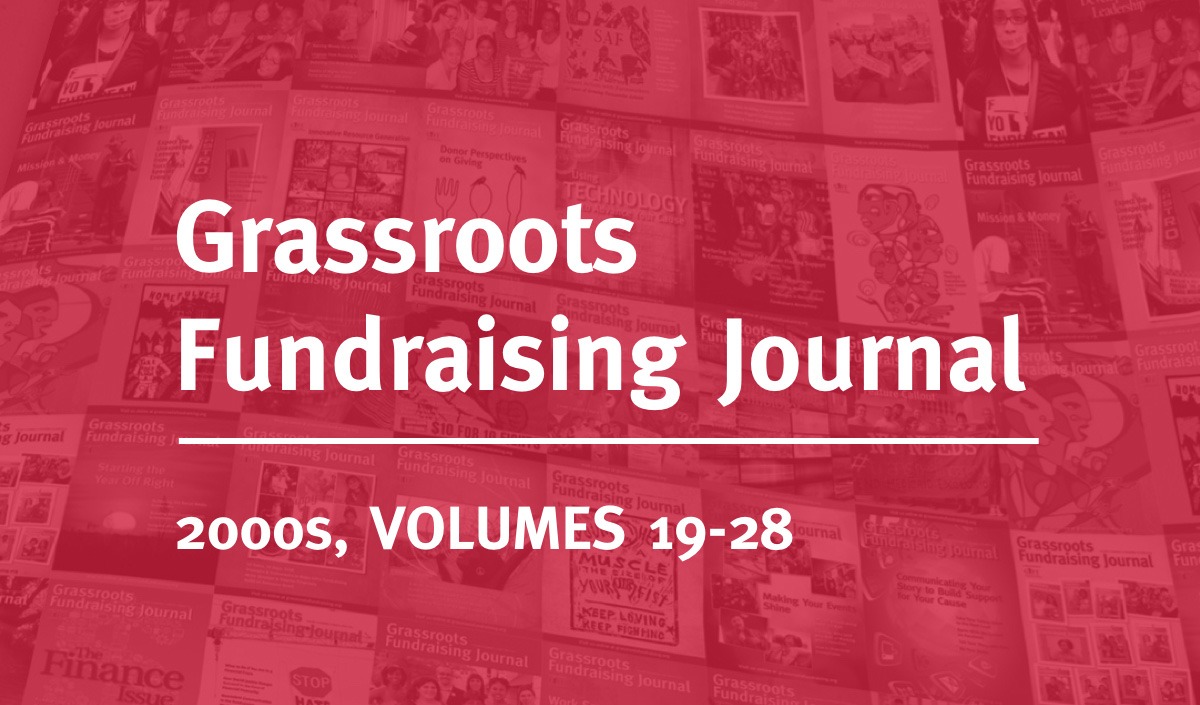
Editors’ note: This article, first published in print during June-1999, has been republished for Nonprofit Quarterly with minor updates.
Thousands of very successful organizations are run entirely by volunteers. Service clubs, volunteer fire departments, PTAs, and neighborhood organizations have no paid staff. Many of these organizations have run successfully for years. They are designed by volunteers and designed to be run by volunteers. Other organizations may prefer to have paid staff but cannot afford them, so they, too, run on the energy of volunteers.
Sign up for our free newsletters
Subscribe to NPQ's newsletters to have our top stories delivered directly to your inbox.
By signing up, you agree to our privacy policy and terms of use, and to receive messages from NPQ and our partners.
If you are such a group, here are five pointers:
- Volunteers should think of themselves as unpaid staff. Staff people have jobs and tasks for which they are accountable. Volunteers have the same obligation as paid staff to do what they say they will do. Similarly, no one should tolerate incompetence and lack of follow through from a volunteer any more than they would from a paid person. In a group where everyone volunteers, it is really important to create an environment where people do the work they say they will do.
- Volunteers have lives beyond the organization. They should not be encouraged to take on more work than they feel they can do. Suppose you know that Mary Jones would make a great treasurer but she says she hasn’t got the time. You talk to her several times, beg her, tell her that no one else can do the job but her; finally she agrees to do it. Don’t be surprised when Mary turns out not to be as good a treasurer as you had expected. As part of respect for each others’ time, it is imperative to create and support an organizational culture that encourages people to finish the tasks they take on, even if that means taking on fewer tasks. Also, some people have more time than others and so some people may be able to take on more work than others. This needs to be all right in the group and people with less time must not be made to feel that they are not doing enough if they don’t put in as much time as those with more time.
- Volunteers should use their own and other people’s time respectfully. Meetings should start and end on time. A facilitator or the chair of the meeting or the group as a whole should agree on how long each agenda item will take and try not to take longer than that. There is usually more to say, and one more way of looking at things, but unless you are an academic think tank, you can’t explore every possibility.
- People should take on particular responsibilities. Someone should be the treasurer, someone should prepare the agenda for meetings, someone should be the chair. Organizations working in a collective model can rotate these responsibilities (which need to be rotated occasionally anyway). The group should not have to wonder “Who is in charge of filing our 990?” or “Who has the checkbook?”
- People should be particularly careful about writing things down. Turnover in all-volunteer organizations is often high, and knowledge gets easily lost, particularly if there is no office or central place to keep files. If you do a special event or a direct mail appeal or write a proposal, keep track of everything someone else might want to know about it in order to do it faster and easier the next time. Preparing reports and narratives for the use of people who will come after you is the best way to ensure that your organization can continue to function well using volunteers and, in fact, helps to ensure that your organization can grow.
- Volunteers should constantly seek to expand the number of volunteer workers. There is so much work to be done that a few initial dedicated volunteers will burn out quickly. You should be drawing new people into the organization all the time who can help share the work and broaden the organization’s thinking and its access to funds.
All-volunteer organizations are not that different from many grassroots organizations that have one or two paid staff people. In fact, in many grassroots groups there are two kinds of staff — low-paid and unpaid. In all other grassroots groups there is one kind of staff — unpaid. The work is still valuable and people’s time is very valuable. Keeping these pointers in mind will ensure that your organization is able to do the useful and important work it has set out for itself.









